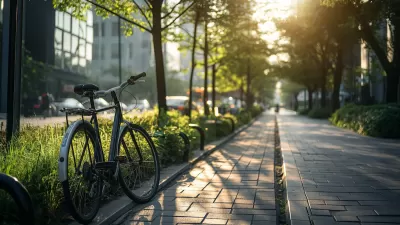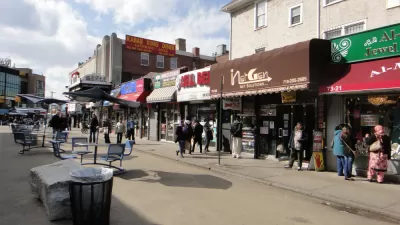While we're sure the ever-popular "Best City" lists serve some nebulous purpose, a new metric seeks to identify and evaluate America's metro areas by a more comprehensive understanding of how well they're achieving "complete communities."
This may not be the be-all and end-all of best city lists, but a new study out this week from the nonprofit Reconnecting America, seeks a more comprehensive method of evaluating and comparing America's metro areas in terms of their progress toward "more equitable, affordable, sustainable, and walkable communities," writes Richard Florida.
So what are "complete communities"? According to the report, "Are We There Yet? Creating Complete Communities for 21st Century America," the elements that "support economic opportunity and health for all people," include: "a quality education, access to good jobs, an
affordable roof over our heads, access to affordable healthy food and
health services, the ability to enjoy artistic, spiritual and cultural
amenities, access to recreation and parks, meaningful civic engagement,
and affordable transportation choices that get us where we need to go."
Complete communities, they write, are "places where people can live, work,
move, and thrive in a healthier, more equitable, and more economically
competitive way."
So, let's get to the good stuff. What are America's most complete communities? Of the metro areas with more than 3 million people, New York and San Francisco lead the pack. Of the metros under this size, Honolulu, San Jose, Denver, Portland, Oregon; Trenton-Ewing, New Jersey;
Lincoln, Nebraska; Missoula, Montana; and Spokane, Washington all fared well.
FULL STORY: The Ingredients of 'Complete Communities'

Planetizen Federal Action Tracker
A weekly monitor of how Trump’s orders and actions are impacting planners and planning in America.

Maui's Vacation Rental Debate Turns Ugly
Verbal attacks, misinformation campaigns and fistfights plague a high-stakes debate to convert thousands of vacation rentals into long-term housing.

San Francisco Suspends Traffic Calming Amidst Record Deaths
Citing “a challenging fiscal landscape,” the city will cease the program on the heels of 42 traffic deaths, including 24 pedestrians.

Amtrak Rolls Out New Orleans to Alabama “Mardi Gras” Train
The new service will operate morning and evening departures between Mobile and New Orleans.

The Subversive Car-Free Guide to Trump's Great American Road Trip
Car-free ways to access Chicagoland’s best tourist attractions.

San Antonio and Austin are Fusing Into one Massive Megaregion
The region spanning the two central Texas cities is growing fast, posing challenges for local infrastructure and water supplies.
Urban Design for Planners 1: Software Tools
This six-course series explores essential urban design concepts using open source software and equips planners with the tools they need to participate fully in the urban design process.
Planning for Universal Design
Learn the tools for implementing Universal Design in planning regulations.
Heyer Gruel & Associates PA
JM Goldson LLC
Custer County Colorado
City of Camden Redevelopment Agency
City of Astoria
Transportation Research & Education Center (TREC) at Portland State University
Jefferson Parish Government
Camden Redevelopment Agency
City of Claremont




























